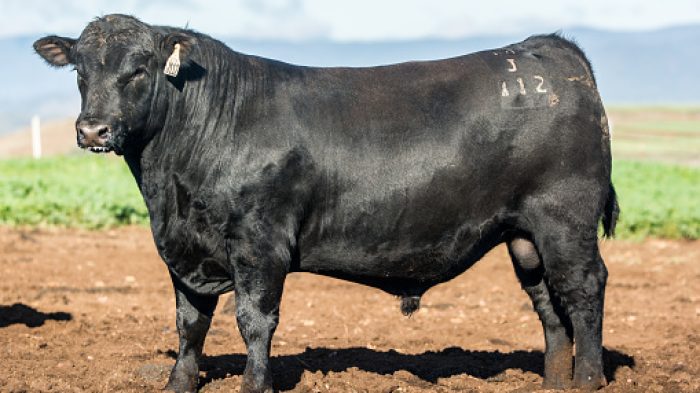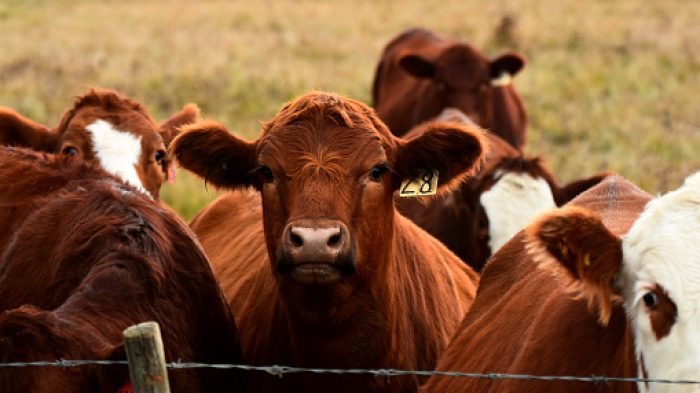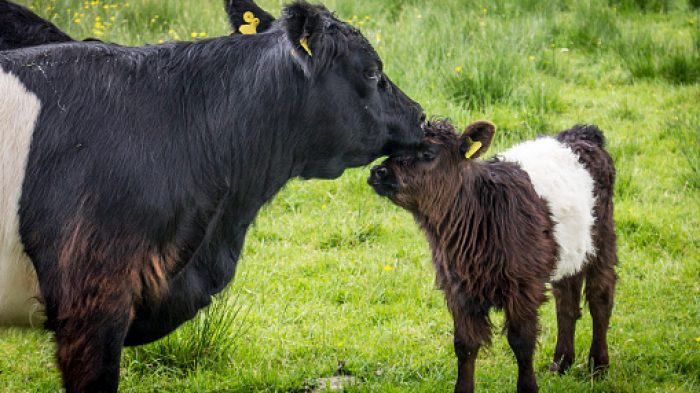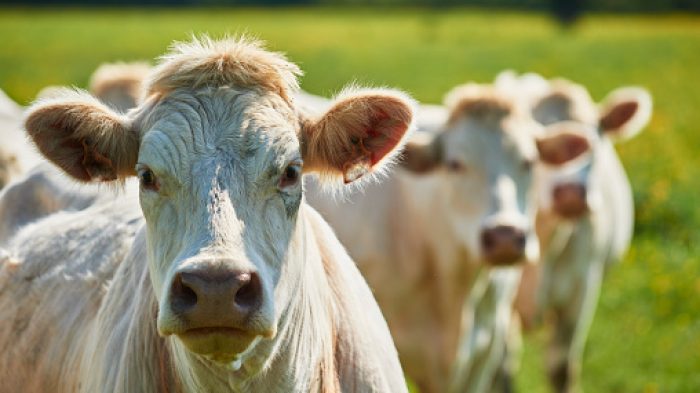
Beef Cattle
Bos taurus
Lifespan
10-20 yearsType of Animal
MammalAnimals Diet
HerbivoreBeef cattle are big animals raised primarily for their meat. Unlike dairy cows, they produce large amounts of high-quality meat that people can eat. These strong animals are essential in the beef industry, providing meat to meet the world’s demand for beef products.
Terminology
Baby = Calf
Young intact male = Bull calf
Mature intact male = Bull
Castrated male = Steer
Young female = Heifer
Mature female = Cow
Group called = Herd
Where in the world can this animal be found in the wild? What is its habitat like?
All over! Brazil and China have 53% of the world's population. In the Unites States, beef cattle in large herds are most commonly found in the western and southern states due to more pasture and land availability.
How many breeds of this animal are there?
Beef cattle can be used for both beef and daily (milk production). Beef cows tend to have lower milk production than dairy cows, but can still produce enough to feed calves and drink for human consumption. Steers (castrated males) are sent for beef typically between the ages of 22-28 months of age. A beef cow over the age of 30 months is subject to BSE (bovine spongiform encephalopathy, also known as Mad Cow Disease). If a cow is sent for beef after the 30 months of age, the bone has to be removed from the cuts of meat.
Give a brief overview of the animal's history in the United States.
The domestication of beef cattle in the United States began about 8,000 to 10,000 years ago. They were originally brought here by Columbus in 1493 on his second voyage. The longhorn cattle (mostly seen in Texas!) were the first breed discovered in 1534 by the Spanish Explorers. On the South Shore of MA, there are only a handful of working beef farms!
Benefits of Working with Beef Cattle
Working with beef cattle offers a host of character-building benefits. Engaging in 4-H programs on the farm allows participants to develop responsibility, teamwork, time management, work ethic, and communication skills, fostering personal growth. The hands-on farm education provides practical learning experiences and creates lasting memories for a lifetime. Daily tasks like feeding, grooming, and tending to cattle instill the significance of routine and hard work, imparting valuable life skills. Moreover, delving into the beef industry and understanding cattle husbandry teaches children about agriculture, nutrition, and sustainable practices, making the experience both educational and enriching.
Fun Facts!
- Both males and females can have horns
- Heifers and cows can be used for both milk and beef
- A cow can detect odors up to 6 miles away
- The US produces about 25% of the world’s beef supply
- A cow has one stomach, but that one stomach has 4 chambers. (rumen, reticulum, omasum, and abomasum)
- Cows do not have upper front teeth
- Cows have best friends just like we do!
Become a 4-H Member
If you are interested in joining 4-H, visit https://plymouthcounty4h.org/, or fill out our Plymouth County 4-H interest form.





